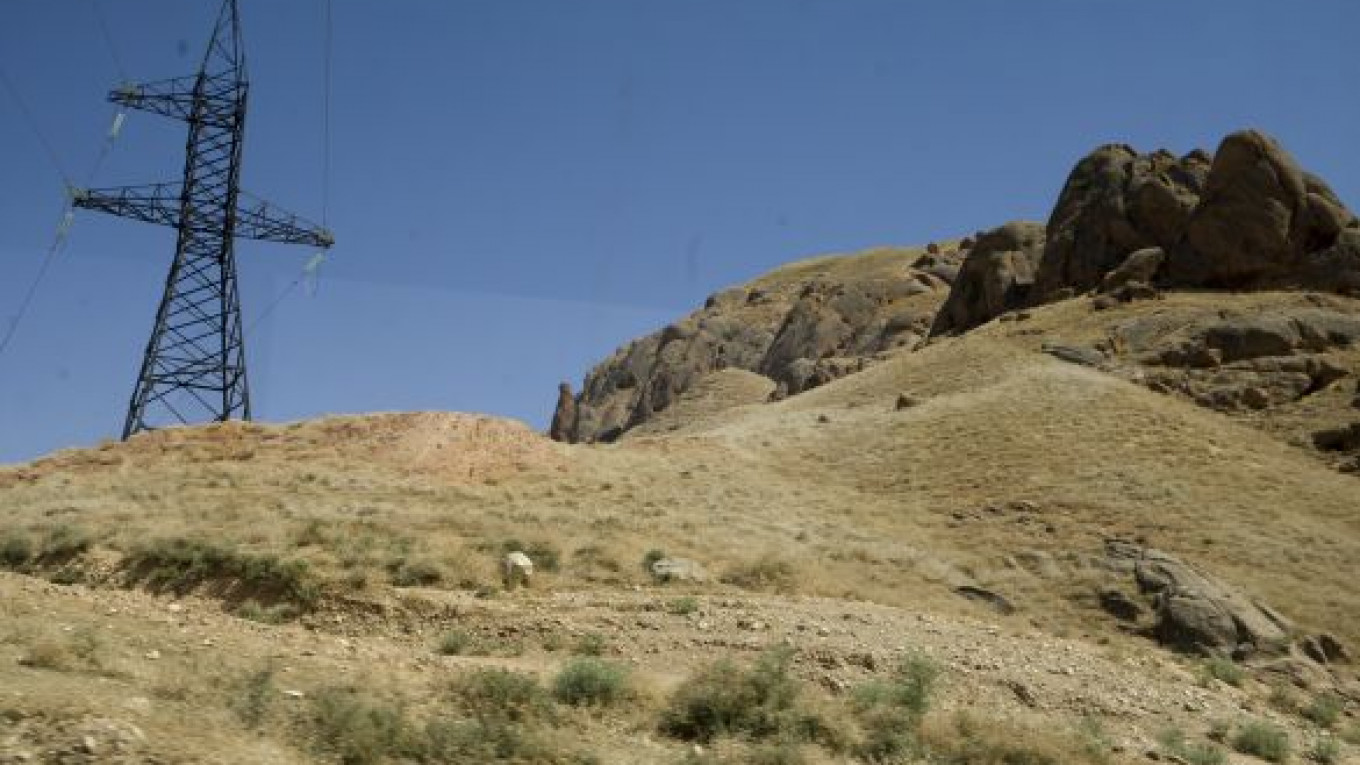DUSHANBE — Tajikistan has rejected requests by foreign powers to allow them to set up military bases on its territory because it does not want to upset Russia, its president said Tuesday.
Central Asia has become an important alternative transit route for shipments of nonlethal supplies for NATO forces in Afghanistan, but international powers have not made any public requests to open military facilities there.
Tajik President Imomali Rakhmon said he had been approached by several countries seeking permission to set up bases in his impoverished mountain nation.
"Russia is the main strategic partner and our natural ally, and I hope that it will always be like this," Rakhmon said.
"On my desk, I have a folder containing offers from other states, promising wonders in return for opening their military bases and other facilities, but we are not even considering them," he said, without naming the countries.
Relations between Russia and Tajikistan have deteriorated recently, particularly after a Russian pilot was jailed in Tajikistan last November, prompting speculation that Tajikistan might seek closer ties with Moscow's rivals in the region.
The pilot and his Estonian colleague were amnestied shortly afterward, but the case has contributed to sour diplomatic ties.
NATO forces are due to pull out most of their combat troops from Afghanistan by the end of 2014 and have not officially voiced any plans to stay in the region beyond that timeframe.
Russia, for its part, says it opposes a long-term Western military presence in Afghanistan while also expressing fears that the NATO pullout could contribute to the spread of drugs and Islamist militancy toward its southern borders.
Rakhmon's secular government enjoyed Moscow's support during a civil war between his forces and the Islamist opposition in 1992-97. Tajikistan is still home to about 6,000 Russian troops at a Soviet-era military base.
Russia wants to renew the lease at Base No. 201 for another 49 years when it expires in 2012. The base includes a satellite-tracking facility in the Pamir Mountains.
Immigration is also a big issue in Tajikistan's relations with Russia, home to more than a million Tajik migrant workers.
The pilots' case has triggered a crackdown on Tajik migrant workers in Russia, with anti-immigration nationalist parties demanding tougher visa rules for Tajik citizens — a worrying signal for a country relying on remittances to make ends meet.
Last year, Tajik workers sent home about $3 billion in remittances, almost half of Tajikistan's gross domestic product.
"We respect the interests of our strategic partner, but our partner should in its turn respect its ally," Rakhmon said. "It is time [for Russia] to finally determine its position and always be with its partner in its hard times."
A Message from The Moscow Times:
Dear readers,
We are facing unprecedented challenges. Russia's Prosecutor General's Office has designated The Moscow Times as an "undesirable" organization, criminalizing our work and putting our staff at risk of prosecution. This follows our earlier unjust labeling as a "foreign agent."
These actions are direct attempts to silence independent journalism in Russia. The authorities claim our work "discredits the decisions of the Russian leadership." We see things differently: we strive to provide accurate, unbiased reporting on Russia.
We, the journalists of The Moscow Times, refuse to be silenced. But to continue our work, we need your help.
Your support, no matter how small, makes a world of difference. If you can, please support us monthly starting from just $2. It's quick to set up, and every contribution makes a significant impact.
By supporting The Moscow Times, you're defending open, independent journalism in the face of repression. Thank you for standing with us.
Remind me later.






